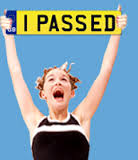Download these FREE Real Estate Test Questions and find out if you have what it takes to enter the exciting world of Real Estate.
0 Comments
 Proper lighting isn't just about creating functional spaces; it can also add interest to an area. Rooms can feel bigger, brighter and more beautiful with the right lighting techniques. Take your home from dreary to dramatic with these simple lighting tricks from the pros. Use Ambient Lighting for Overall Feel -- Choose fixtures that provide sufficient brightness for the room's basic activities, like watching television, eating dinner or relaxing. Does the room have significant natural light? If the area is primarily used during the day, take advantage of that sunlight and complement it with other sources, like recessed lighting, if more is needed. Install Dimmer Switches for More Control -- The lighting required in the family room when you're watching a movie is different from the lighting needed to work on a puzzle or kick back with a book. Use dimmer switches in rooms that serve multiple purposes to vary the lighting quickly and easily. Add Accent Lighting to Highlight Features -- Accent lights draw attention to a room's focal point, such as a fireplace, artwork or feature wall. Options for accent lighting include recessed spotlights, track lights, sconces, uplights, and even some decorative table and floor lamps. Optimize Task Lighting for Specific Lighting Needs --Supplement ambient lighting with task lighting designed to provide light for a specific activity. Common places for task lighting include above the stove and countertops, on bedside tables and computer desks, and over bathroom mirrors. Have you ever watched those old movies where some poor damsel is tied to the train tracks by a
villainous character as a locomotive is speeding towards her. You know the train is coming, but you cannot look away from the inevitable destruction. That is how we as agents feel when working with home sellers who are drinking the media Kool-aid and are pushing and pushing their agents to price their homes way above market value. Although the 2014 and 2015 housing market have been strong, much of the activity was due to 1)buyers that had been waiting to buy, 2) rents continuing to rise, and 3) the threat of rising mortgage rates and less about a housing recovery. The key to successfully selling a home is a balance act of many independent items working together, many of which a home owner cannot control. The first step (which the seller can control) is accepting an offer. When a Seller lists a home it is assumed that the appropriate amount of preparation and research has been completed. The singularly most important decision is properly picking a real estate agent. The agent and seller together determine the success or failure of the sale of the home. The number one element to any successful relationship is LISTENING to one another. The agent must listen to the seller and the seller must listen to the agent. The seller has hired the agent and their expertise. Unfortunately, many sellers see things online and take this misinformation as gospel. A successful agent lives in the real world of residential real estate. Unlike the seller, they live it and breathe it every day. 9 Important Things To Keep In Mind To Avoid Being a Real Estate Dummy 1. Educate your seller about the market 2. Be competitive with other similar homes on the market when pricing the home 3. Pricing a home is key 4. It is all about numbers with appraisers and nothing else 5. Buyers are very well educated; they too have been doing their online research 6. Buyers know what they want and what they will pay for it 7. Old but true saying – “Your first offer is your best offer” still applies 8. Trust your agent 9. Determine what success means before you begin the listing process, manage expectations, and when success is attained – take the win and carry on. You may rather spend your free time relaxing or enjoying a favorite activity and having fun than touring your rental properties, but if you want to earn the max return on your rental investments, be proactive and find problems while they’re small and cheap to fix, instead of catastrophes.
A walk-through and property inspection is essential to perform with your tenant before a new lease term begins and when that same lease ends. These are some reasons why landlords should make regular property inspections. 1. Tenant Compliance. Tenant compliance is among the most important reasons to inspect properties regularly – catching problems early may mean correcting bad behavior without having to evict them. And if they still refuse to comply with the lease provisions, at least you can evict them before they do too much damage to your investment. 2. Routine Maintenance. It’s also critical to double check that routine maintenance is being done, whether the tenant or a third party is responsible for it. Test the smoke and carbon monoxide detector batteries. Check the HVAC filter to make sure it’s been replaced within the last three months, and isn’t too dirty. Is the landscaping and grass being maintained properly? Are the floors scratched to shreds, or did the tenant comply with your proviso that all furniture have felt pads on the feet? 3. Weather Wear & Tear. Weather and human activity can wear on the exterior of any property. You can find out if there are any structural or other problems with the home and façade by doing periodic inspections. 4. Difficult Foundations. Foundation inspections are important, if damage goes unrepaired for too long – the repair costs would be substantial. Cracked foundations and holes invite insects, rodents, etc. and cause structural instability. Water damage can also be a problem. 5. Appliances. Appliances in your property should be checked to make sure that they are safe and in correct working order. This can include the stove and oven, refrigerator, washer, dryer and any other appliances supplied by the landlord. 6. Mechanical Systems. There are normal wear and tear, but be sure to periodically check exposed plumbing lines and fixtures for sinks, toilets, tubs and dishwashers, including access panels and under sinks. Also check electrical switches and outlets, making sure that no breakers are being overloaded. 7. Good Tenant Retention. Having trust between the landlord-tenant is important. Periodic inspections give tenants peace of mind that they are in a safe place and know their landlord cares about them and their safety. Use a Periodic Property Inspection Checklist. Send or post a Notice of Entry in the legally-required timeframe and phone the renters in addition to giving them the notice, to arrange for a time to do the inspection.
Remodeling a bathroom? Watch this short, simple video to save you hundreds of dollars. It's quick and easy. Enjoy!
The average rent of a three bedroom on Oahu jumped 15 percent in just 12 months. With that average of $2,675 per month, most people can qualify to buy a home for over $464,000. Here are 3 reasons why buying a home makes sense.
Reason #1 Take advantage of appreciation. Inflation which is one of the contributing factors of rising rents is a primary reason to buy a home. With inflationary pressures a home that you buy now can be worth tens of thousands if not hundreds of thousands of dollars more in a few years. Monique and her mother Marva purchased a home in January for $360,000. In less than 8 months homes similar to hers were selling for over $400,000. What chance would they have had to save $40,000 to make up that difference in 8 months? Inflation works on your behalf when you own a home. Additionally, you avoid the risk of being priced out of the market. Reason #2 Tax benefits. One of the few tax shelters that exists is owning your own home. Thankfully the government incentivizes home ownership by allowing very generous tax deductions. This is money that would never see your pocket - yet by owning a home you can apply hundreds of dollars a month toward your home. If you could have an extra $300 to $800 per month go toward your housing wouldn't you take it? Reason #3 Lock in your payment. If you rent over time the price will continue to go up. That isn't the case when owning. Your payments can consist of your mortgage payment, taxes, insurance, at times HOA and sometimes mortgage insurance. The bulk of your payment comes from your mortgage payment and that payment can be fixed for 30 years! You'll never having to worry about rent increasing. The best thing is that if you don't go crazy an use your home as a credit card you will one day pay off your loan. Owning a home with no loan is an easy way to retire without stress or take out a reverse mortgage and have your home pay you while you travel the world. So does waiting work when buying a home? Usually no. If you are buying an investment timing matters more, but for home ownership you are already paying for someone else to own it and with the advantages of locking in a fixed payment and the tax benefits over time appreciation will fall in your favor as well. Find a great agent and make it happen. Happy house hunting. Have you ever wondered why some people reach incredible levels of production, while most others fail in the business? Are these Top Producers born with some rare talent, or pre-destined to become successful? After years of studying and compiling the data, sales coaches have determined that all successful people share 4 traits.
While instinct plays a big role here, for the most part, there are a few ingredients that go into making someone a top producer. Education No one knows everything. That’s the beauty of the human race. It’s impossible to know everything. Top Producers understand that, and they seek the answers. They go and find it. Top Producers “check their ego at the door” every day and realize there are lots of things to learn. They know there will always be others who have more experience than they do, and they’re not afraid to ask them for advice. There are several people I go to frequently when I don't know the answer or how to do something. One such friend is Google. He knows EVERYTHING. It’s a rare day that you can stump Google. Use this friend. It this day of technology, there is an infinite amount of resources out there for pretty much everything you want to do-- especially when it comes to real estate. Top Producers are always leaning. They take classes, read instead of watching TV, look things up. Can you name the largest search engine on the internet? If you said Google, you’re wrong. You may be surprised to know that YouTube is the most searched site on the internet. All of this education will come in handy and will further your success and knowledge base. As important as education and knowledge may be, Top Producers know nothing substitutes hard work. In this business, you “eat what you kill” and there’s no short cut to the top. This brings me to my next point... Hard Work The second, and perhaps the most important trait of top producers is they have an abundance of hard work. Yes, there are ways to work smarter to cut corners and you might even be a little successful for a short while. But over time, your success will be directly related to how hard you worked. Top producers work hard, very hard. They go the extra mile and put in those hours, call those clients and leads, do their homework (like knowing the market), and do all of that on a consistent basis. They market themselves well, successfully hold an active presence on social media, network like a pro, and know how to sell well. It all takes lots hard work and time. But nothing worthwhile is easy. So how bad do you want it? Top producers want it bad and work hard to get it. It’s not luck, it’s hard work and determination. Rarely do you not benefit from working hard and doing a good job. That said, top producers have help to pull it off. It’s impossible to do everything yourself, and top producers all employ systems to make them more efficient. Systems All successful businesses know that the 3 P’s are the most important things in their business. People, Processes, and Product. Your career is your business. Top producers know they need the right People on their team to support them and have the right Processes (systems) in place to reach the top. The Product are the homes that they have little control over. The first two they do and they set up their teams to succeed. Carefully selecting the right people to support you, and having the right CRM to manage leads and contacts are critical systems that top producers all employ. The motto here is never take your eyes off of systems. It might be hard and challenging, but it will directly impact your bottom line. One of the biggest qualities that makes agents shoot to the top is how well they can bounce back from adversity. Adaptable The only thing in life that’s constant is change. Change is inevitable, it’s a part of life. Count on it. Top producers are all adaptable. Adaptable is the ability to adjust to new conditions. Top producers embrace change and adapt to it. Flexibility is a key factor in survival. Because of that, I’ve adapted a mantra - “Fail faster.” Top producers aren’t afraid to adapt and fail. They implement, execute, and sometimes fail. Failing faster means leads to succeeding sooner. Sometime you have to learn the hard way, but I’d rather learn that sooner than later. So there you have it. These are the 4 traits of the super successful. You now have several keys to be a top producer. Now go get it! There are specific requirements on how documents are signed in foreign countries. It must be certified or notarized and there are usually three alternatives:
A Consular Officer: Signature acknowledgements outside the United States are typically certified by a diplomatic or consular officer of the US, using a prescribed form under the official seal. What this means is the signer must take the document to a US embassy or consul to sign. Apostille: The Hague Convention Abolishing the Requirement of the legislation for Foreign Public Documents provided that a certificate by an official authorized to provide such certifications can be used to certify a document without the consular or diplomatic form of acknowledgement. This certificate is called an “Apostille” and is attached to the document. The Apostille is in a specific form authorized by the Hague Convention. The official who provides the certificate must be designated to issue an Apostille by the country in which the signature is obtained. You can get a list of foreign countries that are parties to the Hague Convention as well as a list of competent authorities designed to issue Apostilles within those countries by going to: www.hcch.net. Certificate of Foreign Notary Authority: Hawaii statues allow a diplomatic consular officer of a foreign country, located in Hawaii, to provide a certification that the person taking the original acknowledgement was duly authorized by the laws of the foreign country and that it was taken in accordance with the laws of that country. For example, the French Consulate General in Hawaii may certify that the acknowledgement by an official in France was done in accordance with the laws of France and that the official was authorized to take the acknowledgement. Some general guidelines you may want to follow are:
1. Budget your time and make sure you have enough time to study. 2. From the first day be prepared which includes paying attention in class, taking good notes, studying and reviewing your information regularly. 3. Eat lightly before the test and avoid heavy foods and low quality carbs. 4. Attend any review sessions and be proactive by asking questions on items you may be confused about. 5. Show up 10 minutes before the test will start. 6. Do not pull an all nighter to study more. Get a good night's rest. 7. Set your alarm and have a back up alarm ready. 8. Put your main ideas on a sheet for quick review. 9. Use the restroom before taking the exam. You don't want to waste time thinking about anything other than passing your exam. 10. If you are feeling anxiety, take 7 deep breaths. 11. Reward yourself for achieving milestones and ultimately passing your test. The “selling market” is starting to gear up as more listings begin to come on the market. With that, brings big mistakes that sellers make that cost them thousands of dollars every Spring.
1. Overpricing their home in a hot seller’s market. Sellers think that the market is hotter than hot and whatever price they list at will sell in a few hours with buyers competing to get their home. The reality is that there’s a certain segment that is getting that kind of activity; the sub $200,000 category. If a seller lists their $750,000 home for $850,000, don’t expect a frenzy of activity and be prepared to sit on the market for many months and pay the carrying costs that could amount to $10,000 or more. 2. Not staging their home accordingly. Sellers think that the hot seller’s market means they don’t have to stage, or “merchandise” their home to make it attractive to buyers. It’s proven that proper staging is the best money spent when selling a home. Homes properly staged sell faster and for more money…as much as $10’s of thousands more depending on the price of the home. 3. Assuming that buyers want to fix the home. Contrary to seller beliefs, most buyers don’t want to, or can’t make expensive repairs after purchasing a home. Buyers that are able to take on costly repairs don’t offer top dollar for the home. 4. Scenting a home. Sellers that try to make their home smell nice can go overboard and make it a turn off to buyers. Removing smelly odors is good, overdoing it is bad. Here are some proven tips: I. Set a bowl of vinegar out overnight and discard it the next day. It will soak up bad odors and leave the home with a fresh, clean smell. II. Add 1 part vodka (the cheap stuff) and 2 parts water into a spray bottle and spray throughout the house. The alcohol will evaporate quickly and take odors with it. III. Use oranges and coffee grounds. Both neutralize odors very well. Throw them down garbage disposals, trash cans, kitty litter boxes, etc. to get rid of those pesky odors. 5. Leaving valuables or private things laying around. If it’s worth something to you, it’s worth something to a thief. Don’t leave valuable laying around. Put it in a safe deposit box or somewhere else that’s secure. Don’t leave it to chance. There you have it. The 5 biggest mistakes that cost sellers thousands of dollars each Spring. What would you add to the list? |
Archives
January 2016
Categories
All
|





 RSS Feed
RSS Feed